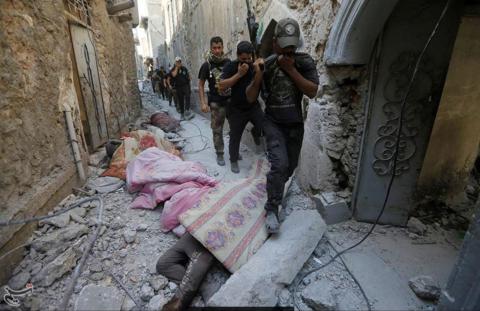
Between November 14 and 23, 2017, Agnes Callamard, United Nations Special Rapporteur on extrajudicial, summary or arbitrary executions conducted an official country visit to Iraq, including the Kurdish autonomous region.
During her visit, Callamard examined responses to the multiple violations of the right to life that have been perpetrated in Iraq since 2014, as well as the steps taken to hold the Islamic State (IS) and the Iraqi security forces accountable for these violations.
On November 27, Callamard issued a statement in which she urged the authorities to establish effective transitional mechanisms capable of redressing human rights violations. According to Callamard, as IS’s defeat is looming, a number of pressing challenges remain, including the need to hold perpetrators accountable for violations of both human rights and humanitarian law in order to provide justice to victims and survivors.
Ahead of the country visit, Alkarama assisted the Special Rapporteur by providing information on the use of the death penalty in the country, the executions carried out by the Iraqi security forces and militias as reprisals against civilians, and the systematic practice of enforced disappearance, all of which seriously undermine the right to life.
While noting that the government has embarked on a “large judicial endeavor to hold ISIL members to account”, the Special Rapporteur expressed doubts over the effectiveness of the Anti-Terrorism Law No. 13 of 2005, under which alleged members of IS are charged. Not only is the law vague, according to Callamard, but it imposes the death penalty for acts whose gravity falls below the necessary threshold of the “most serious crimes” under international human rights law.
This is especially concerning considering that most of the prisoners who are executed in Iraq are convicted under the Anti-Terrorism Law. Death sentences are handed down by the Central Criminal Court of Iraq (CCCI), which systematically considers confessions extracted under torture as evidence. In this regard, Callamard addressed the many risks of unfair trials, among which is the risk of arbitrary executions.
As for the Kurdistan region, where an informal moratorium is applied, the Special Rapporteur has been warned of the risk that the local authorities may resume the use of the death penalty under popular pressure in response to the crimes committed by IS.
Although the UN expert’s visit gave due weight to the violations committed by IS since 2014, human rights violations committed by the Iraqi and coalition forces were also examined. Callamard raised the issue of the disproportionate and indiscriminate bombing campaign conducted by coalition forces, which resulted in the deaths of hundreds of civilians.
She was also informed about a number of arbitrary killings and enforced disappearances committed by the Iraqi Security Forces, including the Popular Mobilization Units (PMU), an umbrella organisation composed of 67 militias currently embedded in the Iraqi army. These include not only the killings of fighters under suspicious circumstances, but also the killings and disappearances of civilians.
During meetings with witnesses of arbitrary executions, as well as victims of human rights violations, Callamard received testimonies pointing to the ineffectiveness of existing complaint mechanisms, as no investigation into their claims had ever been initiated. Others informed her that they have not filed complaints as a result of their displacement, or because of a lack of trust in the authorities, including a fear that they could be subjected to reprisals.
Finally, the Special Rapporteur criticised Security Council Resolution 2379 - which was adopted in September 2017 - for limiting international assistance to the committee that investigates violations. Instead, Agnes Callamard urged the international community to “support the transitional justice process, including by providing comprehensive and impartial assistance, and by paying equal attention to international crimes, including war crimes and crimes against humanity, no matter who had committed them.”
The Rapporteur’s full report containing her findings and recommendations will be presented to the Human Rights Council at its 38th session in June 2018.
For more information or an interview, please contact media@alkarama.org (Dir: +41 22 734 1008).
